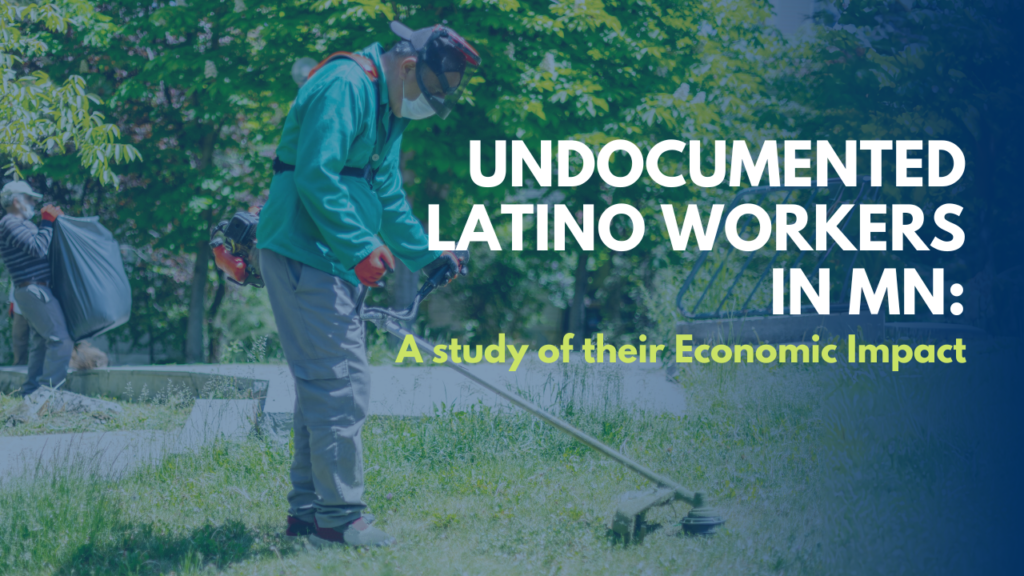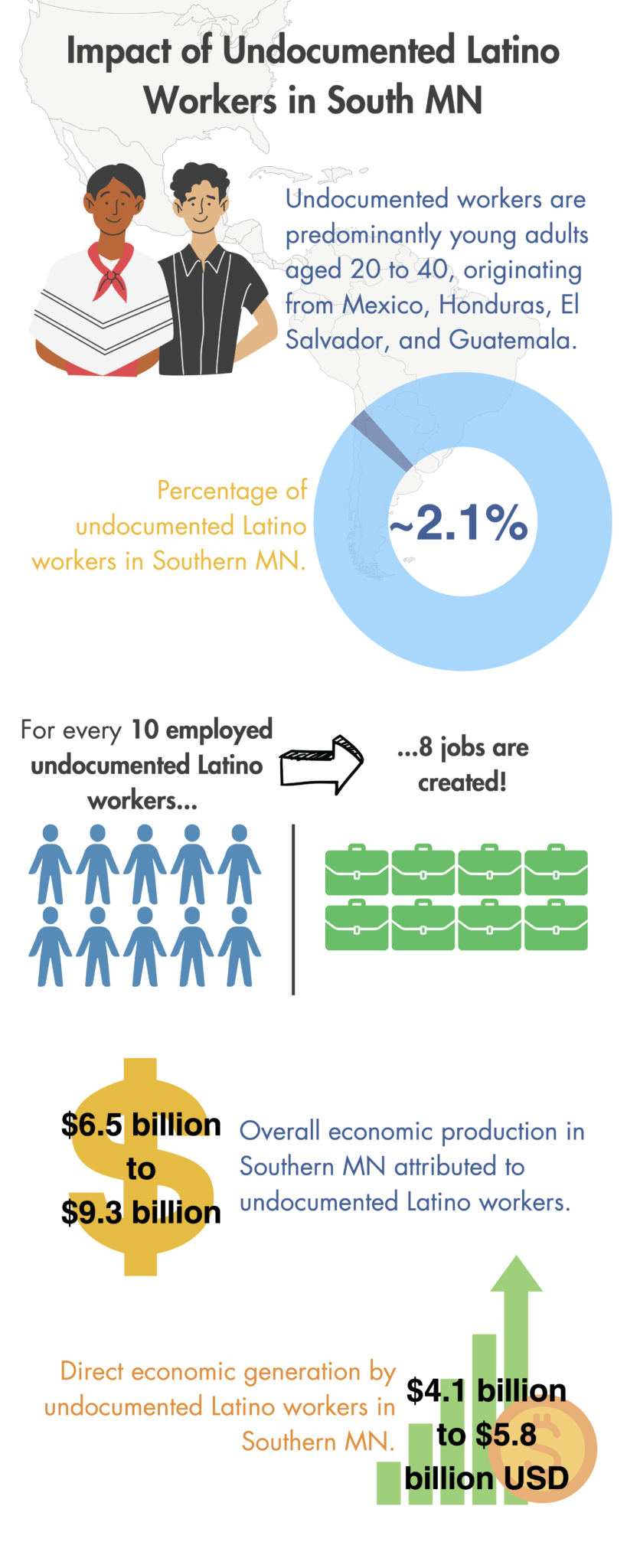
Executive Summary
Undocumented Latino immigrant workers in the United States have historically been at the center of controversial discussions surrounding immigration policy and reform. At a time where our country is recovering from the COVID-19 pandemic and struggling to avoid entering another recession, it is worth looking at this important yet highly criticized population and the direct and indirect economic role it plays in contributing to the Southern part of Minnesota.
Purpose
This study focuses on the economic contribution of undocumented workers in Southern Minnesota, specifically in labor-intensive industries. This research was made possible through the contribution and support of grants sponsored by Blandin Foundation, Southern Minnesota Initiative, and Northwest Area Foundation.
Methods
The study utilizes an input-output analysis, building upon similar research conducted by HACER in 2000 that aimed to quantify the value of undocumented labor in Minnesota. By using the same econometric tool, the research identifies the economic impact of Hispanic/Latino undocumented workers in Southern Minnesota.
Findings
- The profile of undocumented workers indicates that they are predominantly young adults aged 20 to 40, originating from Mexico, Honduras, El Salvador, and Guatemala.
- Undocumented workers are found to be playing a significant role in shaping labor-intensive industries in Southern Minnesota.
- The estimated number of undocumented workers in Southern Minnesota ranges from a low estimate of 4,294 to a high estimate of 10,450.
- Undocumented Latino workers in Southern Minnesota earn a total net income between $650 million and $1 billion USD.
- Direct economic generation by undocumented Latino workers in Southern Minnesota amounts to $4.1 billion and $5.8 billion USD.
- The overall economic production in Southern Minnesota attributed to undocumented Latino workers ranges from $6.5 billion to $9.3 billion USD.
- For every 10 employed undocumented Latino workers, approximately eight jobs are created in the South of Minnesota.
Conclusion
Understanding the economic impact of undocumented workers is crucial for informed policy discussions and efforts to address labor market dynamics. This research provides valuable insights into the economic contribution of Hispanic/Latino undocumented workers in Southern Minnesota. The study’s findings can be used by organizations and individuals dedicated to collaborating with undocumented communities and advocating for immigrant rights. Moving forward, HACER will work on advocating to further explore this topic, addressing the limitations of the current study and extending the analysis to include the economic impact of undocumented workers across the entire state of Minnesota.

